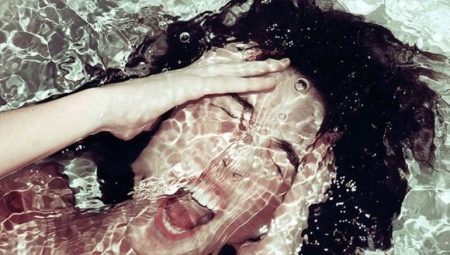Water treatments, bathing, shower, pool provide pleasure and promote relaxation. That is what the vast majority of people on the planet think. On there are those who have the prospect of being in the water or just getting wet inspires horror. Ablutophobia is a fear of washing, swimming, and contacting with water.
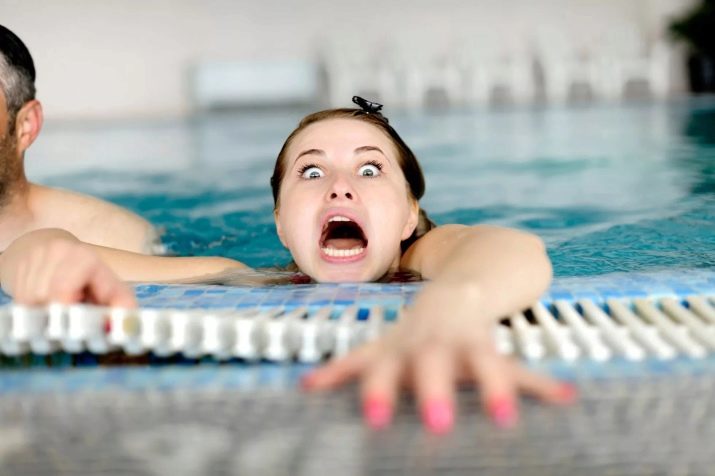
Description
The name of mental disorder comes from the Latin ablutio, which means “washing”. The disorder refers to specific phobias and it manifests itself in a constant, obsessive and inexplicable in terms of logic, fear of bathing, washing, washing hands, washing and other hygiene procedures related directly to the use of water. Sometimes this form of fear is characterized by fear of any toilets and bathrooms as places that are potentially dangerous for a phob.
The Prussian ruler Frederick the Great suffered from this type of phobia. The monarch was so afraid of water that he could not force himself to wash and take a bath. Therefore, a large staff of servants had to daily rub the body of the sovereign with completely dry towels.
Experts consider ablutophobia a rather rare mental disorder, but this has not always been the case.
For example, at the beginning of the last century, doctors encountered a pathological fear of participating in water hygiene procedures much more often, especially in European countries. For some, this was connected with upbringing, culture, and religious beliefs.

Today, ablutophobia is more common in children than in adults, among adults it is more common in women than in men. There are many manifestations of this phobia - some are afraid only to wash their faces, while others avoid washing their bodies, there are ablutophobes who are only afraid of bathing, and can wash themselves calmly. Fear always arises before the need arises to carry out hygiene procedures. And here are also possible options - some are only afraid of a full bath, but may bathe in the shower, while others are the other way around.
In severe cases, a person is generally afraid of water procedures and may refuse to perform them in principle.
Do I need to say that the presence of such a phobia significantly complicates life. Inadequate personal hygiene increases the likelihood of dermatological diseases, and groomed and unpleasant odors that become noticeable to others repel, and gradually the person remains in complete isolation.

Causes of occurrence
In the vast majority of cases, a person experiences the first fear of bathing or washing in childhood, and in his early period. They can call him the careless actions of parents who bathe the child too rudely make him swim forcibly, without trying to interest the toys, persuasions in the process itself.
The temperature of the water may be too low or too high, and a sharp hit of water in the ears, eyes, nose, swallowing and inhalation of water can be concomitant factors on the basis of which the baby experiences panic fear for the first time. After this, the concepts of “water” and “danger” for him exist only together as interrelated.
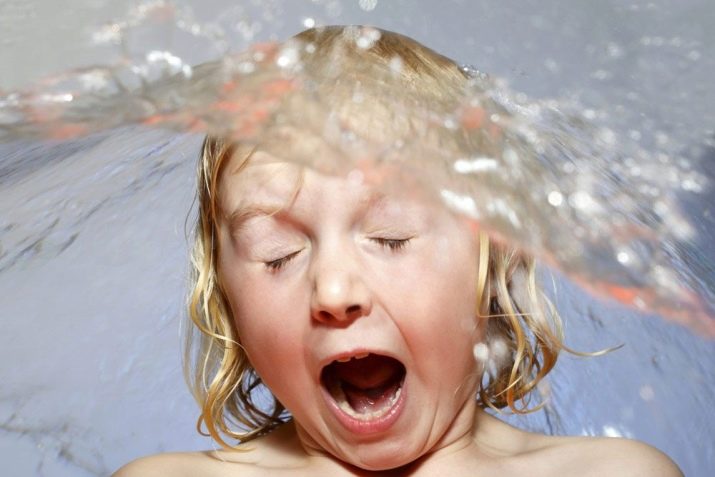
Sometimes the cause of fear is not in the water itself and its impact, but in other fears that a person could experience during water procedures. Please note that when washing, we always close our eyes. If at this moment the child is scared by a loud sound, a cat or something else suddenly jumping on the neck, it is quite possible that incorrect emotional connection between the process of washing and danger. Before washing, in this case there will always be a bad feeling that something dangerous and terrible is coming.
Sometimes children are frightened by the washing machine during operation. For example, the car broke down and water flooded the apartment, the neighbors, electric shock from the washing machine, a kitten, a hamster, a puppy and his subsequent death falling into the drum of the machine. Children are very impressionable, they can very quickly bind water, washing, washing and deadly danger.
The psyche of a child or even a teenager can be affected by watching thrillers and horror films. This is a fact - after the premiere of the film "Psycho", in which the attacks took place in the bathroom, a surge in the number of patients with ablutophobia was noted by psychiatrists around the world.
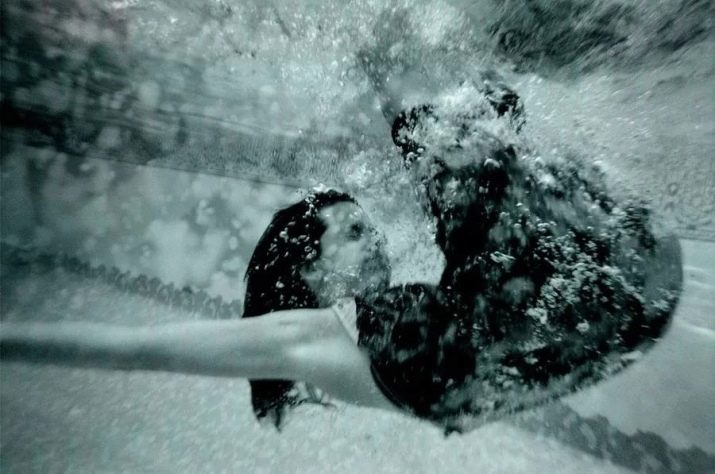
Symptoms and signs
It is not difficult to identify ablutophobe. He carefully avoids what inspires him with fear - washing, washing, washing by hand, bathing in the pool, bathtub, shower. The fear of an ablutophobe is caused not only by contact with water itself, but even by simply thinking that it would not hurt to take a shower or wash. In severe cases, fear manifests itself in a panic attack.
A person has a strong anxiety, anxiety, he becomes irritable, anxiety invariably grows. He cannot get rid of the thought that there is danger ahead, and he perfectly understands on a rational level that washing does not carry any danger, but he cannot cope with his fear.
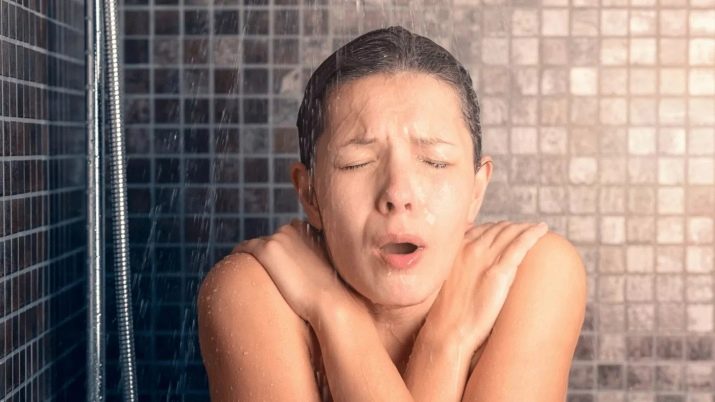
In severe cases, a person falls into a stupor or runs away, his heart rate rises, blood pressure jumps occur, the pupils expand sharply. Can cause nausea. Behavior becomes uncontrollable.
Symptoms usually arise in the immediate vicinity of a frightening situation, when a sink or bathtub is near, when the patient hears the sound of water collecting in it.
Brightly manifested ablutophobia in children. They can suddenly throw a tantrum before swimming, and the reasons for this tantrum are not obvious, parents can not understand what made the child roll on the floor and yell heartbrokenly.

To exclude frequent attacks, the ablutophobe, who understands that “something is wrong with him,” tries to stay away from danger. If the phobia manifests itself only in the fear of washing, he switches to using napkins, refuses to wash his face when washing. If this is a general fear, then a person may not wash himself at all, masking the natural unpleasant odor of an unwashed body with a lot of perfumes, perfumes, deodorants.
If nothing is done, then there is no doubt that ablutophobia will progress and will gradually lead to other concomitant mental problems.
Personal life will be short and unhappy - not every partner agrees to live with ablutophobia. To be friends and work with him is also difficult. Therefore, a person will be susceptible to depression, obsessions, compulsions, and severe mental disorders may develop.

Treatment
Self-help is unlikely to be effective, because a person cannot control the manifestations of his own fear. And you can reproach him, shame, demand to go and wash, blackmail, stimulate and motivate as much as you like. The result will be unchanged - all determination disappears when he approaches the bathroom or hears the sound of water. therefore he definitely needs professional medical help.
A psychotherapist or psychiatrist will help establish the exact cause, even if a person simply forgot about it as they grow older.
This will help hypnosis, gestalt therapy. An effective treatment is cognitive-behavioral therapy and the method of gradual controlled approach of a person to a frightening situation. Sometimes there is a need for taking medications at the same time - antidepressants, sedatives. In severe cases, treatment is carried out in a hospital with the use of tranquilizers and antipsychotic drugs.

With ablutophobia, group psychotherapy is never used. Only an individual approach is always needed.
The process of washing and taking a bath is made gradually familiar, easy, not alarming. With treatment, which can last from a couple of months to a year, a person is not recommended to take alcohol or drugs. It is necessary to enlist the support of loved ones who will provide the patient with the most calm, stress-free, living conditions.
Yoga and meditation, gymnastics, breathing exercises help to achieve a therapeutic effect faster. A psychotherapist can also teach relaxation methods, but the patient must use them independently. The method of gradual wiping with a dry towel, then slightly moist. Each subsequent time, the towel should be squeezed less so that there is more moisture in it. Gradually, addiction to water occurs.



In the next video, you will get acquainted with interesting facts that served as the reasons for the development of ablutophobia in some people.
